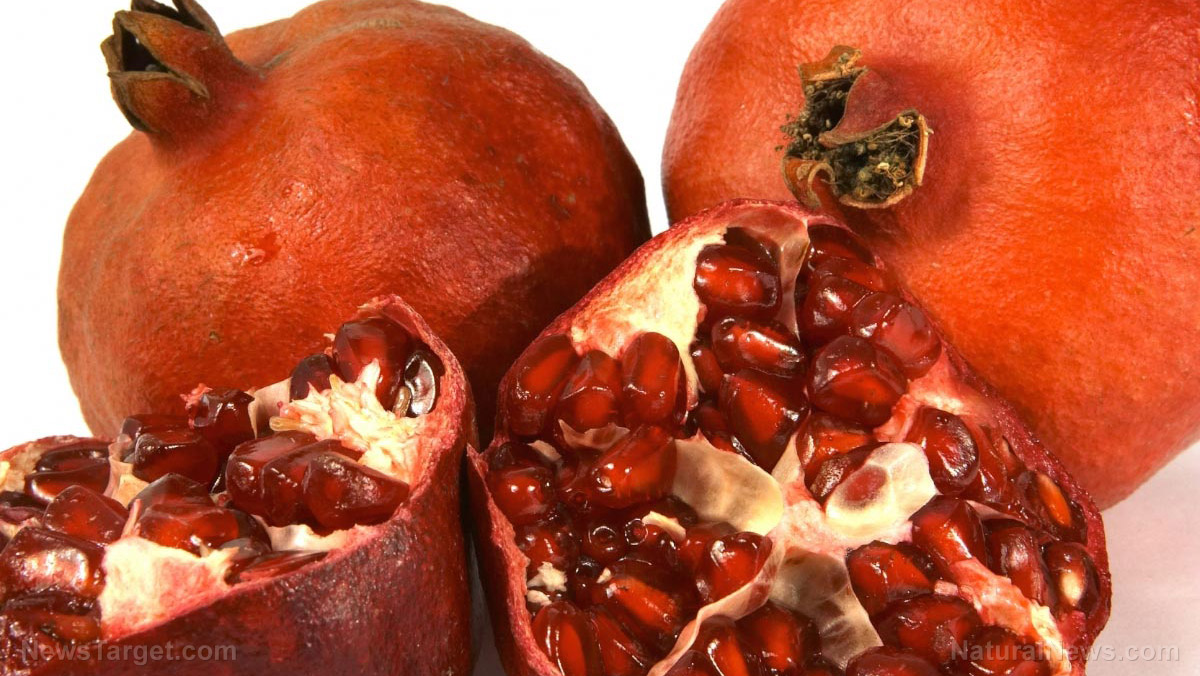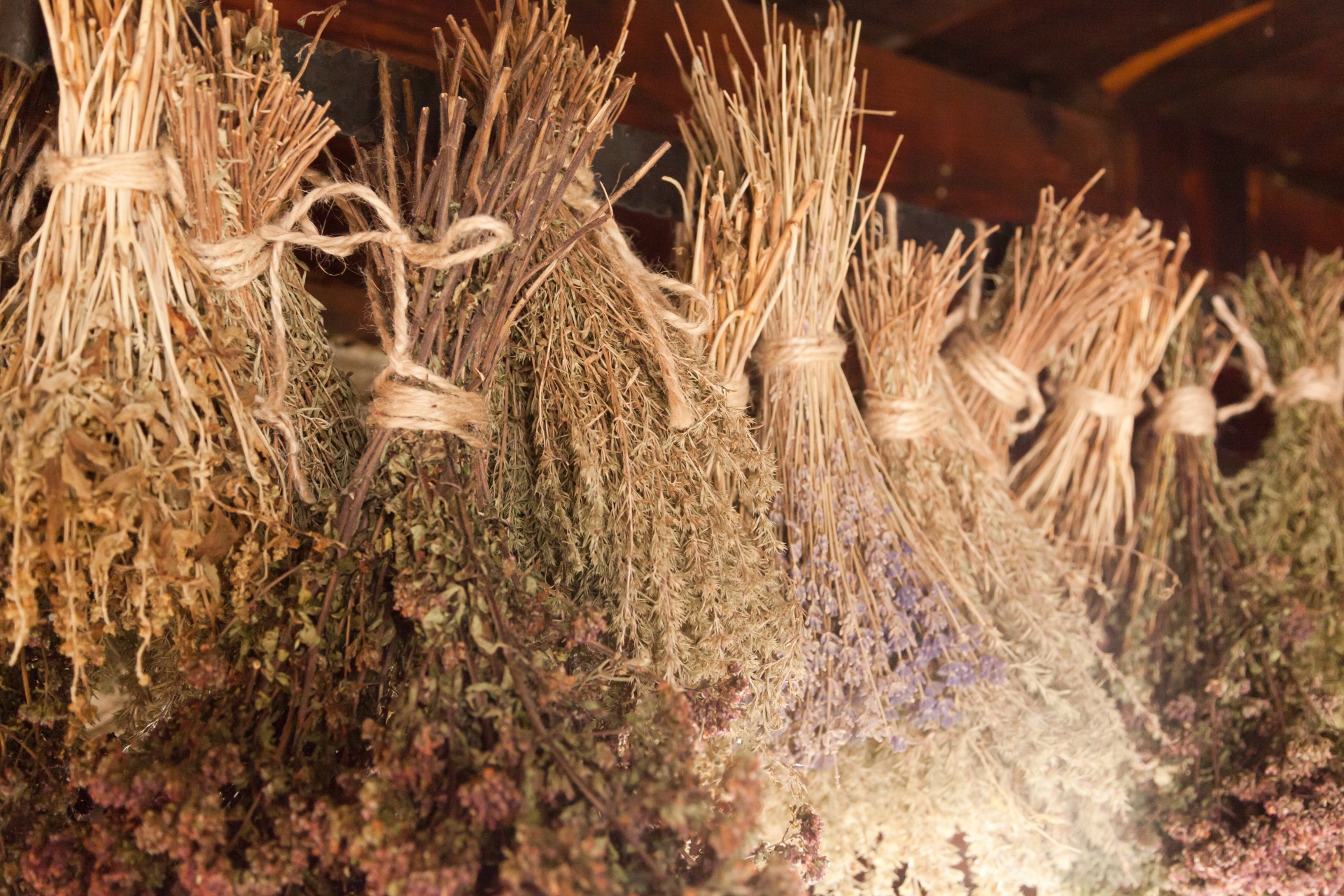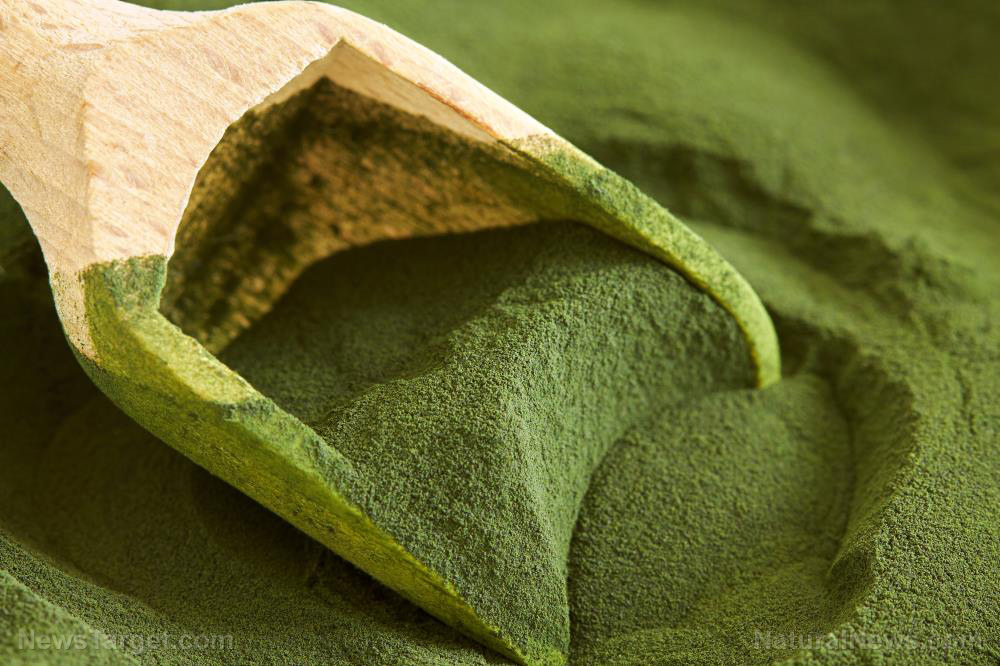The potential therapeutic uses of pomegranate seed oil
12/18/2018 / By Ellaine Castillo

The edible portion of pomegranate (Punica granatum) fruits are the seeds, which are wrapped in soft and juicy vibrant red enclosures called arils. The seeds come with many health benefits, but many people spit them out because of their texture. To enjoy the benefits of pomegranate seeds without having to eat them, people can also extract a potent seed oil containing the different bioactive compounds that contribute to its medicinal properties. A recent review article by researchers from Iran revealed that one of the therapeutic uses of pomegranate seed oil is as an inhibitor of breast and skin cancers.
Pomegranates, which are deciduous shrubs native to Iran, have been used in traditional medicine for a long time. Some of its folkloric uses include reducing inflammation, preventing bacterial infection, eliminating intestinal parasites, relieving diarrhea, stopping bleeding, and treating hemorrhoids. These properties can be attributed to the presence of phenolic compounds with potent antioxidant activity and tannins that are great astringents.
In the paper, which appeared in the Journal of Evidence-Based Complementary & Alternative Medicine, the researchers compiled results from various publications and found that pomegranate seed oil can also be used to inhibit breast and skin cancer, which are two of the most common forms of cancer. Its inhibitory property can be attributed to the large amounts of conjugated fatty acid, which make up approximately 80 percent of pomegranate seed oil. The two main components include punic acid and octadecatrienoic acid.
Punic acid has been shown to inhibit prostaglandin production, resulting in the enhanced biosynthesis of ornithine decarboxylase. This enzyme has been shown to prevent skin cancer. Another way through which punic acid inhibits tumor growth is by neutralizing free radicals that cause fat peroxidation and cell damage. Moreover, it also prevents skin cancer caused by specific carcinogens like 7,12-Dimethylbenz[a]anthracene (DMBA) and 12-O-tetradecanoyl phorbol-13-acetate (TPA).
Patients with breast cancer can also benefit from pomegranate seed oil since punic acid also inhibits the production of active estrogen. Although this hormone is necessary, too much of it will encourage the growth of cancer cells with receptor sites for estrogen. Other cancer inhibitory effects of punic acid include preventing tumor metastasis and promoting cancer cell death. (Related: Pomegranates may prevent estrogen-driven breast cancer.)
Overall, the results of this study show that pomegranate seed oil has excellent therapeutic potential as a natural remedy for skin and breast cancer. This is because of the cancer-inhibitory effects of its conjugated fatty acid components, which include punic acid and octadecatrienoic acid.
Other health benefits of pomegranate seed oil
Pomegranate seeds are rich in vitamins K, B, and C, as well as in minerals like potassium and phosphorus. To make just one pound of pomegranate seed oil, you would need more than 200 pounds of seeds — so you can just imagine the number of nutrients concentrated in each drop. These compounds, along with the conjugated fatty acids, contribute to the many health benefits of pomegranate seed oil, which include the following:
- Improving cholesterol levels — A study published in the British Journal of Nutrition found that daily consumption of pomegranate seed oil for four weeks significantly reduced bad cholesterol and increased good cholesterol. This effect was attributed to the presence of punic acid and flavonoids.
- Reducing blood pressure — Pomegranate seed oil can be used to improve blood pressure since it is rich in antioxidants and other polyphenols that encourage cardiovascular health. Based on the results of a previous study, you can experience this benefit if you consume pomegranate seed oil daily for at least two weeks.
- Preventing skin aging — The antioxidants in pomegranate seed oil protect the skin against oxidative stress, which can damage the skin. Moreover, the oil is also rich in vitamin C that enhances skin elasticity and skin tone.
For more articles about natural remedies for cancer, visit Cancer.news.
Sources include:
Tagged Under: anticancer, breast cancer, estrogen, food as medicine, food cures, natural cures, natural medicine, phytochemicals, pomegranate seed oil, Pomegranates, remedies, skin cancer, tumors



















